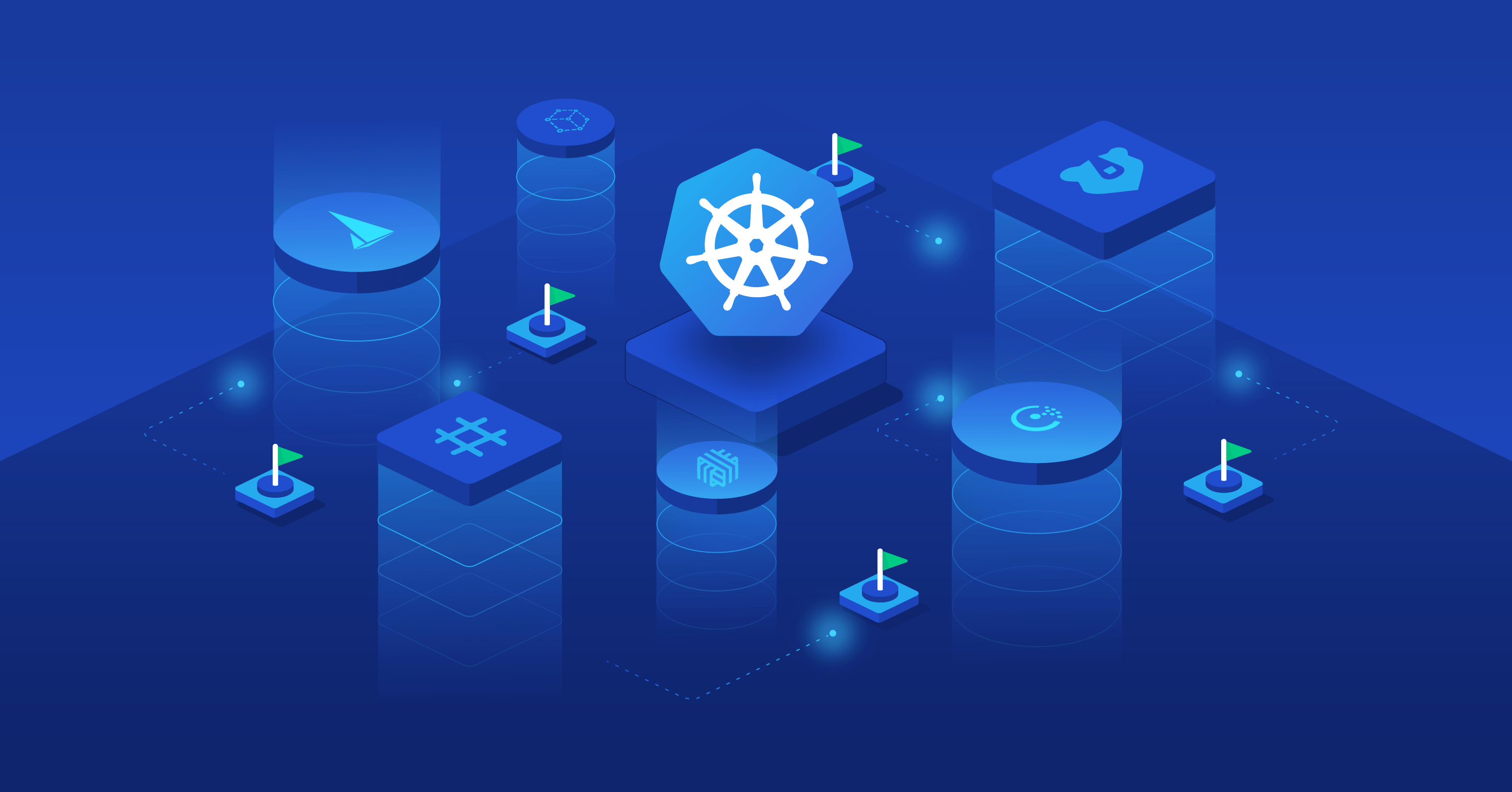
Working with kind cluster
KIND kubernetes cluster lab setup.
Kind is a very good option for those who are just starting with kubernetes and dont have suffecient enough resources available. KIND i.e. kubernetes in docker is a binary file using which and docker you can create multiple node k8s cluster, all in docker container.
Steps
- Docker installation.
- Kind setup.
- Kind config file.
- Setup kind cluster ### Docker Installation
- Docker setup steps based on your linux flavor can be find in here.
- Steps for Ubuntu Click here
- Steps for Fedora Click here
- Steps for RHEL/CentOS Click here
- One script install is also possible here- Script install
Kind Setup
Download and setup kind binary.
curl -Lo ./kind https://kind.sigs.k8s.io/dl/v0.17.0/kind-linux-amd64
chmod +x ./kind
sudo mv ./kind /usr/local/bin/kind
Validate the version.
$ kind version
kind v0.11.1 go1.16.4 linux/amd64
Kind config file
Preapre a file with required configuration. Bellow config is a sample which usage extra port mapping for ingress controller.
File content
kind: Cluster
apiVersion: kind.x-k8s.io/v1alpha4
nodes:
- role: control-plane
extraPortMappings:
- containerPort: 80
hostPort: 80
listenAddress: "0.0.0.0"
protocol: TCP
- containerPort: 443
hostPort: 443
listenAddress: "0.0.0.0"
protocol: TCP
kubeadmConfigPatches:
- |
kind: InitConfiguration
nodeRegistration:
kubeletExtraArgs:
node-labels: "ingress-ready=true"
networking:
kubeProxyMode: "ipvs"
File can be found here
Setup Kind cluster
You can now setup kind cluster by using bellow command.
kind create cluster --name kind --config kind-config.yaml
check the cluster status
kind get clusters
docker ps
To manage the cluster you need kubectl command. Get it setup with this process defined-
curl -LO "https://dl.k8s.io/release/$(curl -L -s https://dl.k8s.io/release/stable.txt)/bin/linux/amd64/kubectl"
chmod +x kubectl
sudo mv kubectl /usr/local/bin/
Now check kind status with kubectl command.
kubectl get node
Setup metric
kubectl apply -f https://raw.githubusercontent.com/sharmavijay86/sharmavijay86.github.io/master/blog/k8ssetup/components.yaml
Setup Ingress
- Install nginx ingress
kubectl apply -f https://raw.githubusercontent.com/kubernetes/ingress-nginx/main/deploy/static/provider/kind/deploy.yaml
Above is patched version for mainly kind. Please note we have already exposed port 80 and 443 in config yaml file so 80 would be listening on kind host node at 127.0.0.1:80 and 127.0.0.1:443
- Setup sample foo bar ingres.
kubectl apply -f https://kind.sigs.k8s.io/examples/ingress/usage.yaml
- check it .
curl localhost/foo
curl localhost/bar
Above is working means we have setup corectly our kind cluster along with nginx ingress controller.
how to expose API for remote access
You see we have exposed nodeport to host machine NIC interface, that is why you can access ingresson kind host ip address. If you wish to access this k8s server from remote machine, then you need api server also to expose on hostport.
This just need a configuration line to put in networking section.
kind: Cluster
apiVersion: kind.x-k8s.io/v1alpha4
nodes:
- role: control-plane
extraPortMappings:
- containerPort: 80
hostPort: 80
listenAddress: "0.0.0.0"
protocol: TCP
- containerPort: 443
hostPort: 443
listenAddress: "0.0.0.0"
protocol: TCP
kubeadmConfigPatches:
- |
kind: InitConfiguration
nodeRegistration:
kubeletExtraArgs:
node-labels: "ingress-ready=true"
networking:
kubeProxyMode: "ipvs"
apiServerAddress: "192.168.56.101"
apiServerPort: 6443
- Check the services nginx ingress.
kubectl create deploy webapp --image=nginx:1.22
kubectl expose deploy webapp --port=8080 --target-port=80
kubectl create ingress webapp --class=nginx --rule="abc.lan/*=webappp:80"
Now make an entry in hosts file for abc.lan and check in browser.
Ingress with config map in nginx:1.22
apiVersion: v1
data:
index.html: |
<h1>Hello from testing CM mount</h1>
kind: ConfigMap
metadata:
creationTimestamp: null
name: foo
---
apiVersion: apps/v1
kind: Deployment
metadata:
creationTimestamp: null
labels:
app: webcm
name: webcm
spec:
replicas: 3
selector:
matchLabels:
app: webcm
strategy: {}
template:
metadata:
creationTimestamp: null
labels:
app: webcm
spec:
containers:
- image: nginx:alpine
name: nginx
volumeMounts:
- name: foo
mountPath: "/usr/share/nginx/html/"
volumes:
- name: foo
configMap:
name: foo
---
apiVersion: v1
kind: Service
metadata:
creationTimestamp: null
labels:
app: webcm
name: webcm
spec:
ports:
- port: 80
protocol: TCP
targetPort: 80
selector:
app: webcm
status:
loadBalancer: {}
---
apiVersion: networking.k8s.io/v1
kind: Ingress
metadata:
creationTimestamp: null
name: webcm
spec:
ingressClassName: nginx
rules:
- host: ckatcswebcm.lab
http:
paths:
- backend:
service:
name: webcm
port:
number: 80
path: /
pathType: Prefix
status:
loadBalancer: {}
ETCD backup and restore
ETCD Backup and restore process
